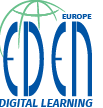
- This event has passed.
Porto
June 11, 2012 @ 00:00
Social and policy context
The European Year and movements for Active Ageing
The population in Europe is getting older. The EU Commission stressed in the Europe 2020 strategy the importance of healthy and active ageing. Values represented by mature citizens are becoming increasingly important in contemporary European societies. The year 2012 will be “The European Year of Active Ageing and the Solidarity Between Generations”.
The European Year serves as framework for raising awareness, generating innovative approaches, disseminating good practice and encouraging stakeholders to participate. In a time of great challenges for Europe, all generations are called to act together and also to learn, to produce, share and preserve knowledge. In the digital knowledge society, technology and social media should not divide, rather they should foster cohesion amongst generations.
Generation Y
Another frequent question has been: how to deal with the new generation of learners who have grown up with the Internet and who are currently entering our schools and universities? The members of ?Generation Y? or ?Net Generation? are technology-immersed learners, easily adapting to technological developments, to the changing media and ubiquitous networks. They have developed critical thinking towards sourcing and judging information and even knowledge. Their expectations and behaviour are enormously different from the previous cohort.
Mature generation and e-learning
Promoting access of older persons to education and to information and communication technologies, and updating skills by providing access to lifelong learning, helps them to remain active and involved in the society. ICT enhanced learning has its place in the lifelong learning of the ?silver age group?. Their electronic media use is more frequent and intensive. Media and the Internet makes it easier to reach them and they may gain ICT skills to maintain contact with relatives and friends.
There is a lot to do to avoid exclusion and marginalisation of older persons: lowering of access barriers to ICT enhanced learning; and remove cultural, technological, situational, educational obstacles. Provision of e-learning products and services including learning environments suitable for them is however a bottleneck. The few existing attempts have been predominantly “pilots” rather than being consolidated in character. There is poor knowledge only on the didactic level. It is important to care about the constructive social embedding of eLearning based on interests and ambitions.
Open learning for and amongst diverse generations
The movements aiming to enhance openness of educational resources encourage institutional policies which support innovative pedagogical models. Such models have been significant in empowering learners and their communities as co-producers in networked lifelong learning. Open resource attitude promotes democratic transformations in the information society. New media and technologies help to accelerate this process.
The development of an open climate and culture of learning enables educational institutions to better meet the demands of the public. Helping to spread educational resources as digitised content which accommodate different learning pathways, widening participation and promoting shared learning experiences between generations contributes to closing the technology gap.
The EDEN 2012 Conference
The Annual Conference approached the key questions of learning methodology and technology focusing on the ?Open learning generations?, the contexts of socially significant target groups: junior and senior e-learners. We will explore their learning cultures, technology use patterns, and discuss new approaches in pedagogy and andragogy that respond to them.
The changing technology dimension: development of networking tools, new platforms and standards, and interoperability questions, will also be addressed from the perspective of different groups of users.
Pragmatic observers may state meanwhile that there is not that much novelty in new generations applying different tools and approaches to changing social and technology conditions. Thus there is space for interpretation by established distance learning professionals to consider the diverse practice and experience with young and adult learners in the open learning arena.
